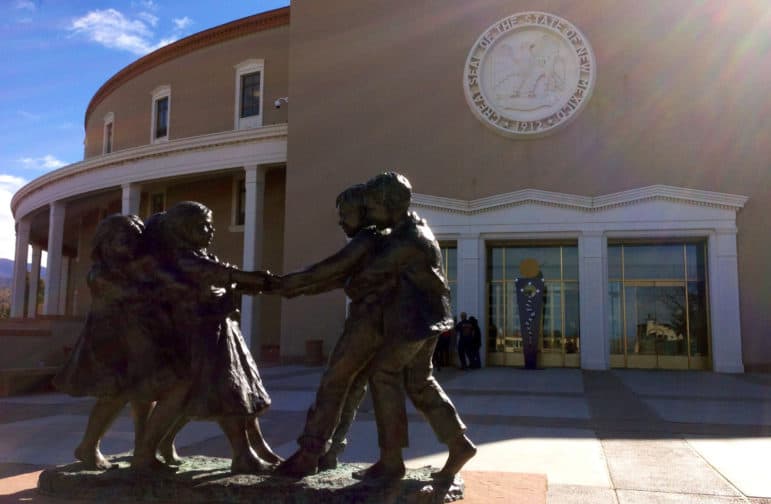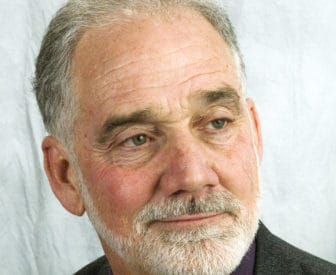
Heath Haussamen / NMPolitics.net
A statue outside the Roundhouse in Santa Fe.
COMMENTARY: Scab picked off blogger/press issue.
Some yet-to-be identified person, acting without any authority save their own, took it upon him or her self to ban “bloggers” from a space reserved for “the press” on Tuesday at the Roundhouse.

Mark Bralley
Ched MacQuigg
Although the sign was hung without the backing, permission or even the knowledge of the people who have the authority to post signs, the underlying issues are real enough.
There are those who believe “bloggers” are not entitled to the same First Amendment protection as members of “the press.” It’s an issue that needs settling as both bloggers and “the press” are under attack and need to be standing together rather than divided.
It’s time to take a step back to arrive at some consensus, at least of the meaning of the terms we’re using. What is a “blogger,” and by what justifiable criteria are they materially different from “the press?”
What are “credentials?” Who decides what they are and who gets to distribute them?
The press and bloggers are on the same side. Both our accesses are being increasingly obstructed by politicians and public servants needing to hide the truth, whatever it is, from stake- and interest-holders.
We have to consider that we both have interests to protect — and most of the most important ones are interests in common.
Those who would rather that both bloggers and “the press” remain ignorant of what goes on in meetings in secret would rather deal with “the press” for at least two reasons:
They would argue, for one, that a higher caliber of reporting can be expected from those who have expressed or implied accountability to the Society of Professional Journalists Code of Ethics. It bears noting that, by the SPJs own free admission, its code of ethics is utterly unenforceable. There is no enforceable standard that requires “the press” to abide by the standards. The issue of journalistic ethics is more of a red herring than real issue.
More importantly, there is an arrangement in place between powerful people and their media friends: In exchange for access, the truth will manipulated in the interests of those granting access.
Since bloggers have no access to begin with, they cannot be denied more access. Our lack of access can’t get any worse, so we’re unintimidated by their threats of denying any more access. We’re free to publish harder hitting exposés without fear of further restriction.
Understandably, that makes politicians and public servants feel uncomfortable. Apparently, and for the same reason, many of the “accredited” press feel the same. By whom were they accredited? According to what criteria? By what authority?
Senate Sergeant at Arms David Pacheco says his office is in charge of handing out “press passes.” He says he provides them to news reporters who “show an employment ID” or other “ID card from a news agency.” Are those really the criteria that the founding fathers had in mind when they addressed the need to protect “the press” from overbearing government?
Ched MacQuigg is a retired shop teacher and blogger. He has been a longtime advocate of honest accountability to meaningful standards of conduct for politicians and public servants — in particular for the leadership of the Albuquerque Public Schools.